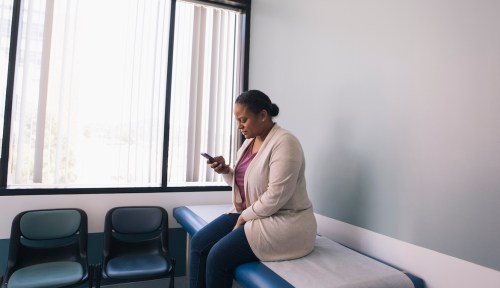New Study Shows the HPV Vaccine Reduced Cervical Cancer Cases by 87 Percent (And You’re Likely Not Too Old To Get One)
A new study sheds light on the question: How effective is the HPV vaccine at reducing cervical cancer risk?

Cervical cancer is the fourth most common type of cancer in the world for women, according to the World Health Organization (WHO), and the American Cancer Society estimates that 4,290 women will die from the condition in 2021. Various strains of the human papillomavirus (HPV), a sexually transmitted infection, cause the potentially fatal disease. However, a new study suggests that the HPV vaccine—which is now available to everyone between the ages of 9 and 45—has been instrumental in reducing cervical cancer cases by up to 87 percent.
The observational study, published in The Lancet, divided a group of teenage girls in the U.K. into three cohorts and followed them throughout their 20s and 30s to track their health outcomes as part of an HPV immunization program in England. The first cohort consisted of girls between the ages 16 to 18 years old; the second, girls aged 14 to 16; and the third group included girls ages 12 to 13 years old. Overwhelmingly, the results of the study emphasize how important the vaccine is for everyone—but particularly teenage girls.
The researchers observed that each vaccinated group gained “substantial” protection against cervical cancer and CIN3 (or cell abnormality in the lining of the uterus), with the HPV vaccine proving to be 87 percent effective in reducing cervical cancer cases when administered to girls in the 12 to 13 age group. It also provided 34 percent protection among those in the 16 to 18 cohort and 62 percent protection for the 14 to 16-year-old cohort.
“There’s been a misconception that if you vaccinate children against HPV, people think they’re going to start becoming sexually active,” gynecologic oncologist Sharyn Lewin, MD, FACS, FACOG, previously told Well+Good. “But really, the two things don’t have anything to do with each other.” Many doctors recommend that everyone between the ages of 9 and 26 get the vaccine.
In 2018, the Food and Drug Administration (FDA) expanded the vaccine recommendation to include those between 9 and 45. However, not everyone over 26 should get the shot, according to the CDC. People between 27 and 45 should consult their primary care physicians because they may have already encountered the virus. “By the time you vaccinate individuals in their 30s and 40s, many have already been exposed to HPV, so the health benefit really decreases at these older ages,” Jane Kim, PhD, author of another cervical cancer study, told Harvard T.H. Chan’s School of Public Health. “It’s also important to emphasize that cervical cancer screening remains an effective and cost-effective way to protect women from cervical cancer.”
Although most HPV infections are benign, an estimated 79 million Americans currently have the STI, and some of the more high-risk strains can cause cancer of the cervix, vagina, or anus. So, if you’re in the age range and your doctor has signed off, it’s not too late to gain protection from HPV.
Oh hi! You look like someone who loves free workouts, discounts for cult-fave wellness brands, and exclusive Well+Good content. Sign up for Well+, our online community of wellness insiders, and unlock your rewards instantly.
Sign Up for Our Daily Newsletter
Get all the latest in wellness, trends, food, fitness, beauty, and more delivered right to your inbox.
Got it, you've been added to our email list.










